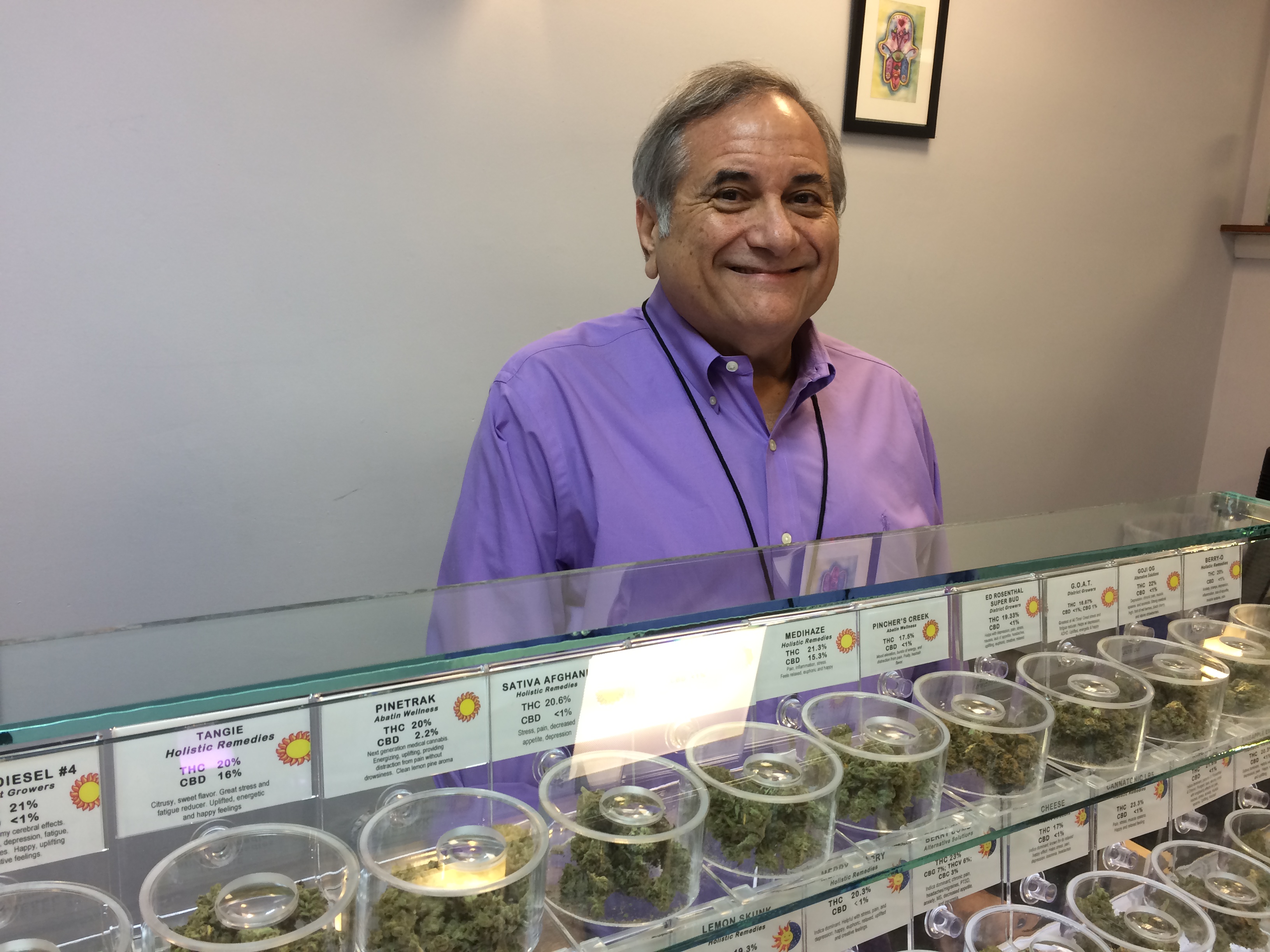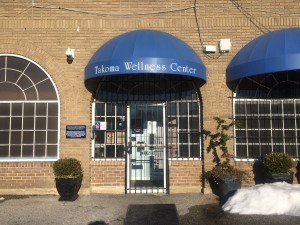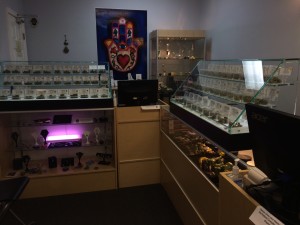 If there’s one thing I know for sure about being Jewish, it’s that we like to ask questions.
If there’s one thing I know for sure about being Jewish, it’s that we like to ask questions.
Want to be a Jew? We’ll ask you why.
On the Passover holiday, we have the same four questions every year and we even make a point of making the youngest at the table ask them.
There’s even a whole book in the Bible that is largely constructed out of questions, it’s the book of Job and God’s answers to the questions makeup four chapters of yet deeper questions.
Judaism is a religion based on asking questions.
 So just as any good Jewish cannajournalist would do, I asked Rabbi Jeffrey Khan, owner of the Takoma Wellness Center, one of DC’s medical marijuana dispensaries, how his faith and career in cannabis go hand in hand.
So just as any good Jewish cannajournalist would do, I asked Rabbi Jeffrey Khan, owner of the Takoma Wellness Center, one of DC’s medical marijuana dispensaries, how his faith and career in cannabis go hand in hand.
“Just the whole concept of really going out of one’s way to really be able to find relief for what ails you almost becomes a commandment in itself,” said the Rabbi.
In the Jewish religion, there’s this thing called a mitzvah, it means good-deed. One can perform mitzvot for others and even yourself. The Rabbi explains how good deeds also apply to one’s health saying, “in Judaism, it’s not a mitzvah to suffer. It’s really more of a mitzvah to find relief.”
When I asked Rabbi Khan to speak about cannabis and Jewish principles, I didn’t even realize at the time, but I was justifying yet another reason why many Jews are okay with talking about cannabis.
“Another reason I think why a lot of Jewish people here in the U.S. are involved in this movement and that Israel is like the center of all medical marijuana research and everything is coming from there is kind of – maybe what you said, about always asking questions and not really taking dumb answers for a reason,” he adds, “it makes no sense that this plant suffered the kind of banishment that it suffered over the last 75 years and been maligned for doing all kinds of terrible things when actually there’s keys to understanding our whole health system and how we function and how we can be relieved of maladies in the midst of it.”
Rabbi Jeff saw the positive effects of cannabis first-hand at an early point in his rabbinate career, in an article he wrote for TIME, he shared a timeline of events that started him on his cannabis journey.
“For nearly 30 years, I served as a congregational rabbi. My rabbinate began in June 1981, on the same day the first case of AIDS was reported in the press. The beginning of my career coincided with the beginning of AIDS taking its heavy toll on humanity,” he wrote. The Rabbi also saw what the plant did for his father-in-law who was suffering from MS. He reflected on his firsthand experience in the article;”My family and I had a very close and personal experience with marijuana as medicine. My late father-in-law Jules Reifkind had multiple sclerosis for more than 50 years. Of the many, many treatments he tried to help live with that condition, the one that really helped was marijuana.”
“So I think even on that one level there is that whole idea of bringing relief and bringing comfort and that that’s an important thing,” the Rabbi told me in our interview. “And health just about overrides everything. So probably the classic example that when I was serving as a congregational rabbi was people would come to me on Yom Kippur and say, there’s this reason or that reason why I shouldn’t fast – and the thing is that it’s always true. It is true that if for any reason you shouldn’t fast for health reasons, then you shouldn’t. Even though eating on Yom Kippur is a terrible sin.”
Yom Kippur is the day of atonement, the holiest day in the Jewish religion.
“So rather than just going to the top and professor Raphael Mechoulam and Yechiel Gaoni who discovered CBD and THC in the early 60’s – rather than saying when he heard about Lebanese Hashish – rather than saying burn it, what could it be any good for, he said I want to study that, why does it have that effect on people, what else could it mean for us? And that is really where all of this comes from in some sense”
See what I mean with all the questions?
“I think that’s an important part of it too, and being willing to being open enough to really have your eyes open to try new things that are there to be tried, I guess would be the way I would put it, explained the Rabbi.”
Chloe Sommers is the Executive Editor of the Never Daunted Radio Network. You can reach her on Twitter @ChloePalma


2 Replies to “It’s Healthy to Ask Questions: A Rabbi Explains Why Cannabis and Judaism Go Together”